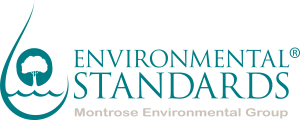
Spot Your Liability with a PFAS Lab Audit
Over the last few years, the US EPA has drafted new methods and updated existing methods for per- and polyfluoroalkyl substances (PFAS) analysis in various matrices. More and more laboratories are jumping into the PFAS analytical market. They acquire some solid phase extraction (SPE) equipment and a liquid chromatograph equipped with tandem mass spectrometer/mass spectrometer (LC/MS/MS) instrumentation. They know how LC works, they have experience with MS, how different could it be, right? It is different, alright.
Laboratories will generate standard operating procedures (SOPs) for sample preparation, analysis, and reporting, even when there is a published method. When selecting or contracting with an analytical laboratory, how do you determine if the laboratories you use are following their SOPs or the requested methodology quality requirements for PFAS testing? Here are a couple of starting points that you can use that do not require you to a be chemist.
- Check the laboratory’s accreditation (if there is one) for the PFAS matrix to be tested. Accreditation is a voluntary process through which a laboratory undergoes evaluation by an independent organization to ensure it meets certain standards. In the case of PFAS testing, laboratories should be accredited by organizations such as the Department of Defense (DoD), State Agencies, The NELAC Institute (TNI), or the United States Department of Agriculture, which have specific accreditation programs for environmental testing laboratories.
- Request and review the quality assurance/quality control (QA/QC) procedures: Laboratories should have written QA/QC procedures that outline how they ensure the accuracy and precision of their results.
- Ask for documentation: Laboratories should be able to provide documentation of their QA/QC procedures, as well as their accreditation status. This documentation can be reviewed to ensure they are following the specified method quality requirements for PFAS testing.
While these steps are useful, there is still many assumptions being made about the laboratory performance. Analytical laboratory audits performed by personnel that understand the sample preparation and analytical procedures are the best tools for assessing liabilities that may arise from using a commercial or in-house laboratory. The audit process is geared to evaluate if the laboratory is following the SOP or specified method quality requirements and producing reliable and accurate PFAS testing results.
For over 30 years, Environmental Standards, Inc. has conducted third-party laboratory audits for our clients. Our Auditors will evaluate the areas that are important to you including:
- Adherence to SOP or method requirements
- Adherence to client-specific requirements
- Quality system requirements
- Analyst training documentation
Audit Cost-sharing Opportunities
As in years past, we invite you to take part in a unique cost-sharing opportunity. Please take a look at our 2023 laboratory audit nomination list.
The laboratories on this list have been nominated by a wide range of industrial clients to be audited by Environmental Standards during 2023. The list also identifies the current number of clients sharing the cost of each audit and the current audit scope. Many of the audit dates are still “open” and will float while the stakeholders (the clients, the laboratories, and Environmental Standards’ Auditors) determine optimal audit dates. If you have additional nominations, please contact me via email or call 610-935-5577.
Your Data Quality Watchdog
Finally, you may want to consider contracting Environmental Standards for all of your third-party data validation needs for your high-profile projects and/or to serve in an oversight capacity as your “data quality watchdog.”

